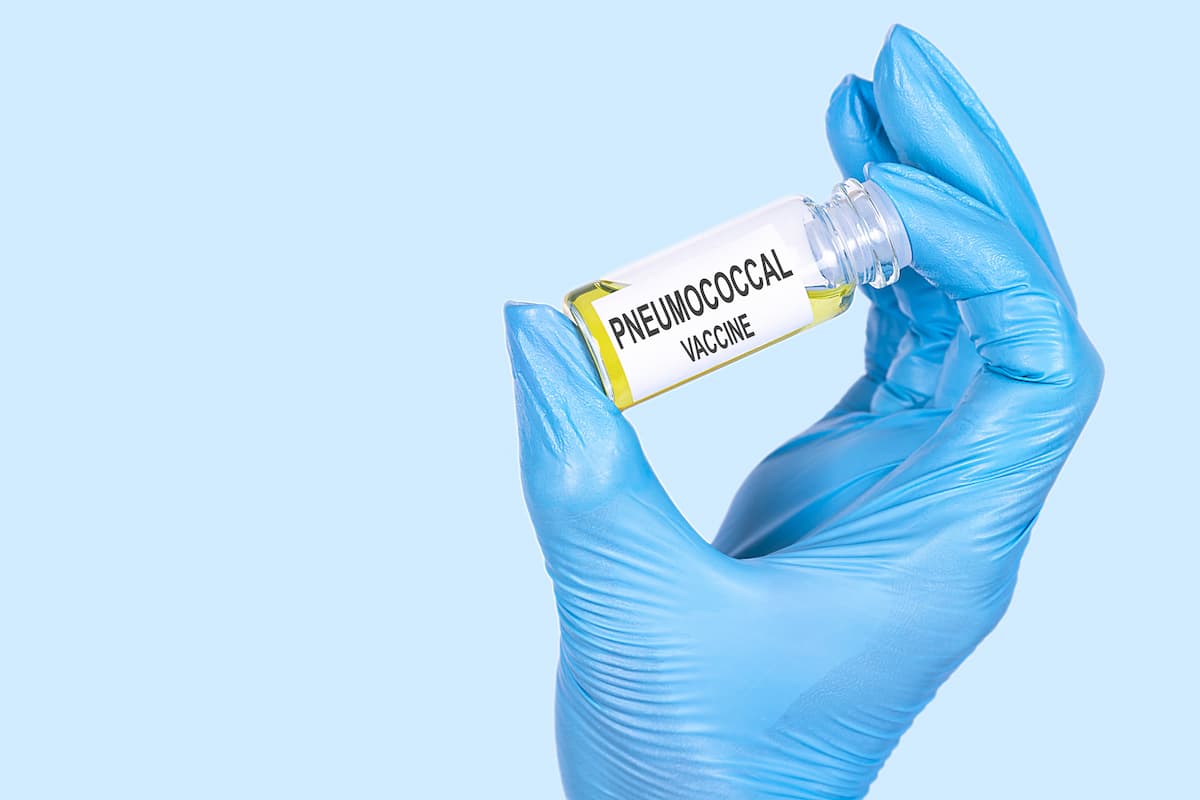News
Article
PCV10 Elicits Durable Immune Response in T2D, Though Response Remains Inferior to Nondiabetics
Author(s):
Key Takeaways
- Patients with T2D have a 3-fold increased risk of pneumococcal infections, leading to higher mortality rates compared with nondiabetics.
- PCV10 vaccination in patients with T2D results in a significant, but less durable, humoral immune response compared with nondiabetics.
These results suggest that individuals who are immunocompromised with type 2 diabetes (T2D) may need multiple doses of a pneumococcal conjugate vaccine (PCV) to sustain their protection.
Adults with type 2 diabetes (T2D) vaccinated with pneumococcal conjugate vaccine 10 (PCV10) demonstrated a significant protective humoral immune response, although the response was considerably less robust with a more rapid decline in those with T2D compared with nondiabetic controls, according to the results of a study published in Vaccine.1
Image Credit: © PRO Balance - stock.adobe.com

T2D Heightens Risk of Serious Pneumococcal Disease
Individuals with T2D face increased risk of other comorbid conditions, including pneumococcal infections and invasive pneumococcal diseases such as pneumonia and meningitis. There is a particularly heightened risk of pneumococcal infections, as patients with T2D face a 3-fold increased risk of infections, long hospitalizations, and heightened mortality rates compared with nondiabetic counterparts. Fortunately, multiple effective formulations of PCVs are available for adults and pediatrics, although current literature on pneumococcal vaccine responses in patients with T2D is lacking.2,3
Although some past authors have observed heightened serotype-specific antibody titers in patients with T2D compared with healthy counterparts following a pneumococcal polysaccharide vaccine (PPV), there has also been high variability in baseline concentrations and antibody functionality in T2D reported by investigators. Overall, there is limited evidence regarding the immunogenicity of PCV10, particularly in T2D. The current investigators sought to address these gaps through evaluating PCV10 humoral immune responses in a high-T2D-burden, resource-limited setting in Pakistan.1,4,5
Patients With T2D Have Strong Vaccine Response, But Less Durable Than Nondiabetics
According to the investigators, this trial was the first to study PCV10 immunogenicity in such a setting. In total, 180 adults with and without T2D were enrolled in the trial. In an important note, the enrollees did not present with a history of pneumococcal vaccination. At each time point, serotype-specific anti-pneumococcal polysaccharide IgG concentration was measured against pneumococcal serotypes 1, 19F, 9V, and 18C, given the prevalence of these serotypes in the Pakistani population.1
There was a robust humoral response observed against PCV10 and a significantly increased serum IgG against each tested serotype. Furthermore, the antibody concentration remained significantly higher than the baseline level against all 4 serotypes when measured 8 months post-vaccination. Still, when patients were categorized into groups based on the HbA1c values, those without T2D were found to have significantly higher total IgG concentrations than those with T2D following immunization, indicating a less-durable response to the vaccine in the T2D population.1
In their discussion, the investigators pointed to the higher mortality rates among patients with diabetes due to pneumococcal infections to underscore the importance of these results. Above all, the results indicate that PCV10 is effective at increasing serotype-specific IgG concentration up to 8 months post vaccination in adults both with and without T2D. However, there was a meaningful decrease in protection after 8 months in patients with T2D, “suggesting an altered immune response to vaccination in those with T2D,” according to the investigators.1
There were some limitations reported by the investigators, most prominently the fact that the single-center study was based on a small sample size. Furthermore, there were only 8 months of follow-up; a longer amount of time following vaccination for evaluation could present more thorough outcomes. Still, these results indicate the importance of repeated pneumococcal vaccination in patients with immunocompromised conditions, including T2D.1
REFERENCES
1. Ahmad I, Burton R, Arshad R, Younis B-B, Mirza S. Humoral immune response to 10-valent pneumococcal conjugate vaccine (PCV10) in individuals with type 2 diabetes mellitus. Vaccine. 2025;55(10):127029
2. Seminog OO, Goldacre MJ. Risk of pneumonia and pneumococcal disease in people hospitalized with diabetes mellitus: English record-linkage studies. Diabetic Medicine. 2013;30(12):1412-1419. doi:10.1111/dme.12260
3. Petigara T, Zhang D. Pneumococcal vaccine coverage in adults aged 19-64 years, newly diagnosed with chronic conditions in the U.S. American Journal of Preventive Medicine. 2018;54(5):630-636. doi:10.1016/j.amepre.2018.01.033
4. Beam TR, Crigler D, Goldman JK. Antibody response to polyvalent pneumococcal polysaccharide vaccine in diabetics. JAMA. 1980;244(23):2621-2624. doi:10.1001/jama.1980.03310230023016
5. Matthews CE, Brown EL, Martinez PJ, et al. Impaired function of antibodies to pneumococcal surface protein A but not to capsular polysaccharide in Mexican American adults with type 2 diabetes mellitus. Clin Vaccine Immunol. 2012. doi:10.1128/CVI.00268-12
Newsletter
Stay informed on drug updates, treatment guidelines, and pharmacy practice trends—subscribe to Pharmacy Times for weekly clinical insights.





